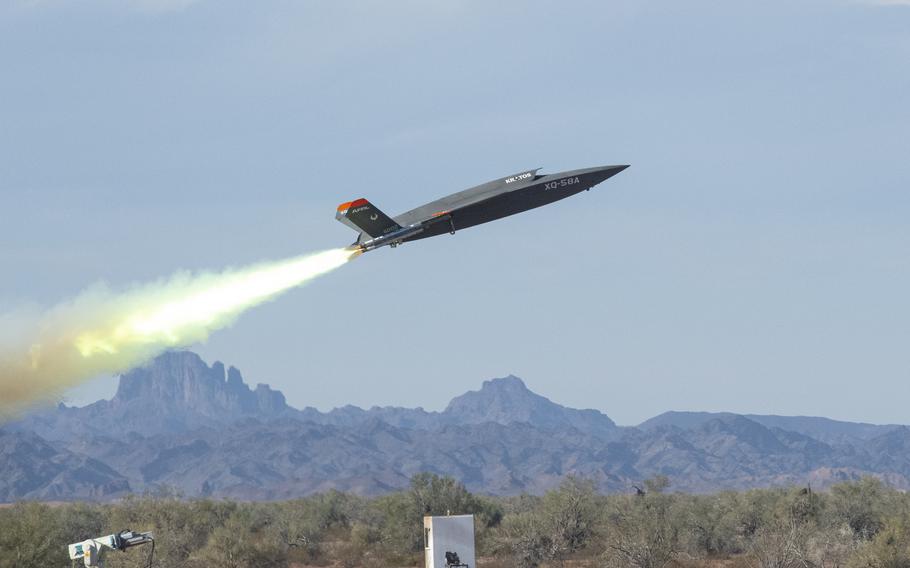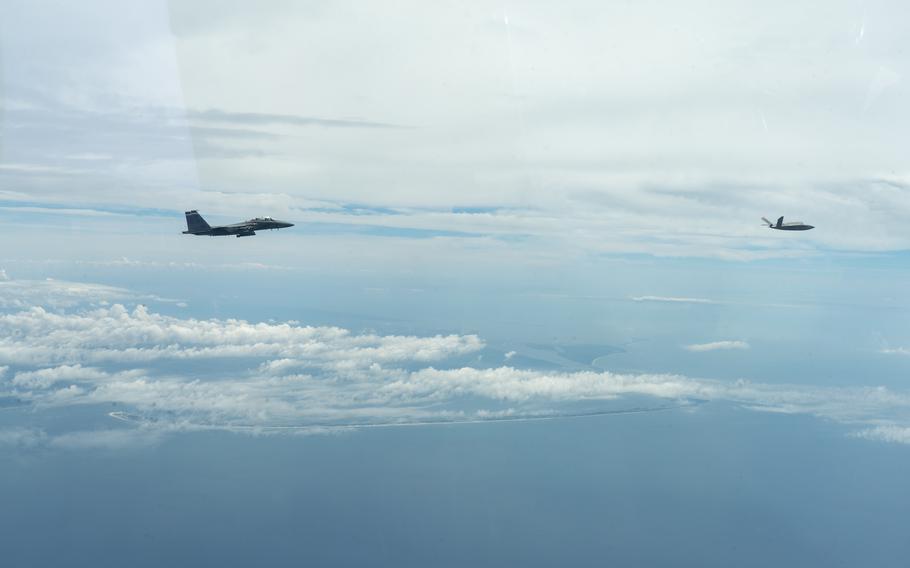
An XQ-58A Valkyrie unmanned airplane takes off from the U.S. Army Yuma Proving Ground in Arizona on Dec. 9, 2020. The Air Force recently announced that the Valkyrie drone was flown by artificial intelligence for the first time. (Joshua King/U.S. Air Force)
Air Force researchers are touting the achievement of the first unmanned flight using artificial intelligence algorithms after a successful three-hour sortie by an XQ-58A Valkyrie.
The flight took place at Florida’s Eglin Air Force Base on July 25, according to a statement issued Thursday by the Air Force Research Lab, which developed the unmanned plane in partnership with Kratos.
The AI algorithms used in the flight were created by the lab and honed through millions of hours of simulations, the statement said.

An F-15E Strike Eagle from the 40th Flight Test Squadron at Eglin Air Force Base, Fla., accompanies an XQ-58A Valkyrie flown by artificial intelligence, in an undated photo. The Air Force recently announced that the Valkyrie drone was flown by AI for the first time. (U.S. Air Force)
“AI will be a critical element to future warfighting and the speed at which we’re going to have to understand the operational picture and make decisions,” said Brig. Gen. Scott Cain, the research lab commander. “We need the coordinated efforts of our government, academia and industry partners to keep pace.”
The Valkyrie is a reusable unmanned plane that was designed to be far less costly to operate than traditional counterparts, whether they have a pilot or not, according to the Air Force Research Lab website.
The July 25 flight put a capstone on a multiyear partnership that began with the Skyborg Vanguard program, the statement said.
The Valkyrie used in the flight arrived at Eglin last year. It is rocket-launched off a rail system and controlled from a ground station or airborne fighter.
An onboard computer system can determine the best flight path and throttle settings to comply with commands, the Air Force said.